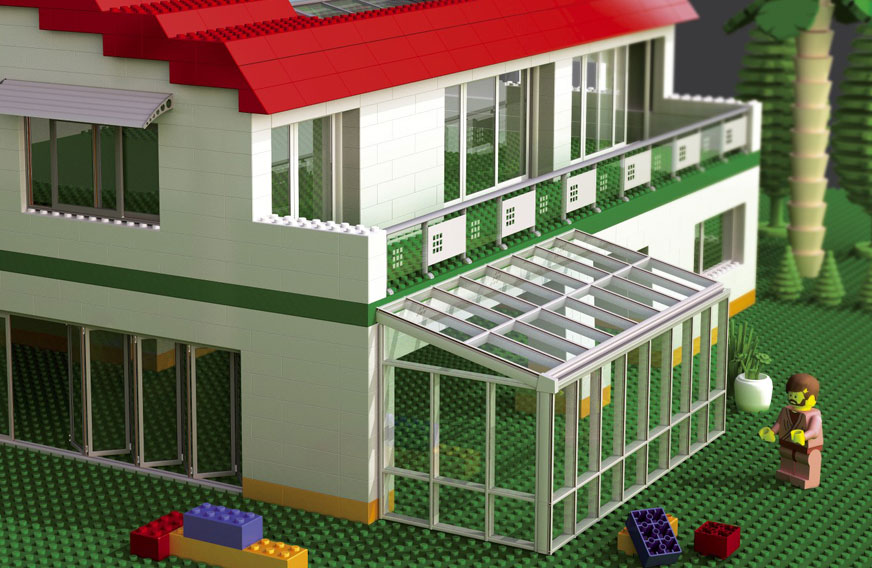Alumil
Heavy Industry
Alumil is one of the top European production groups and systems integrators for aluminum profile systems and components. The group is the biggest private industrial unit in Europe in terms of aluminum production capacity. Production sites include 13 factories in 4 national cities and 6 international. These are spread in Kilkis, Serres, Xanthi, Komotini (Northern Greece) and internationally in Romania, Bulgaria, Serbia (2), Bosnia and Albania.
In summary the group is producing:
- Aluminum systems for all construction purposes (doors, windows, panels, etc.) designed, developed and tested by the R&D department of the group and certified by most well-known international institutes (IFT Rosenheim, etc.).
- Industrial profiles of special requirements (for automotive, ship building industries etc.) offering specialized solution in a variety of different sectors.
- Interior, security and fire proof doors.
- Composite aluminum panels (j-bonds).
- Polycarbonic sheets.
With its 26 subsidiaries and 2,300 employees in Europe, Africa and the Middle East, and with a sales network present in 45 countries, Alumil has been established as one of the biggest and most credible aluminum extrusion industries.
Alumil's project objectives
Alumil's objectives from selecting and implementing Mantis' Logistics Vision Suite (LVS) are summarized below:
- Improvement of shipments accuracy and elimination of shipment errors (both in codes and in quantities / weight).
- Productivity improvement in the distribution center for rods and consequently for downstream products.
- Accuracy and efficiency in identifying location of (raw material and finished goods) stock in the distribution centers.
- Improved customer service for special treatment products and special packaging that the group is providing for specific customers.
- Automatic data and information flow from the distribution centers to Alumil's commercial system (Oracle ERP) and vice versa, in order to avoid multiple data entry, improve productivity and ensure data accuracy.
Challenges and Solutions
The main challenges for such a project were due to the special nature of the product and the lay-out of the warehouses in combination with Alumil's demanding requirements to optimize the utilization of the warehouse space / racks and increase the productivity of its warehousing resources. The fact is that it is extremely difficult (if possible at all) to implement any form of coding on such products at the item level. Also the codes of the different products are not easily recognizable since in some cases they can differ by only a few millimeters in certain dimensions of the aluminum profiles.
Hence, the receiving process of un-coded items (or collections of rods packed together) in the warehouse is extremely difficult. The rolls of rods and boxes are coded by Alumil's production system and the label carries all the useful information in electronic form that is in turn automatically utilized by LVS.
Furthermore in cases of make-to-order products, the relevant order code / numbers are also included in the labels, thus allowing LVS to support customer order cross-docking for immediate packing and printing of the respective shipping labels.
Similarly, in case of receipts from a different plant of the group where there is no product coding, the distribution center relies on LVS to first perform the required labeling of the received products before initiating the put-away process. LVs' put-away algorithms are in principle dictated by the nature of the product (fast or slow movers) as well as by the specific item and stock attributes.
The group is now in a position to fulfill faster and more accurately any special treatment requirements from specific customers, a business that is gradually increasing in volume. In order to do so, Alumil relies on LVS' ability to identify the stock that is ready for further processing separately from the stock that is characterized as final product.
Order fulfillment is one of the most complicated procedures in Alumil because it requires that the fulfilled orders should cover customer's special requirements to the highest possible degree without at the same time interrupting the production process. As a result in case a special customer order cannot be fulfilled due to shortage of available stock then the shipment is blocked.
Alumil is also optimizing shipment routing and loading of the delivery vehicles and provides that as input to the everyday work load of the distribution center. The distribution center's loading plan is flexible and is optimized accordingly. When the picking process of a specific order is starting, then this order is allocated in the specific daily loading plan and the proper stock is locked to that order. The picking procedures are mainly based on orders with different algorithms for fast and slow movers.
LVS has also the flexibility to adjust to low and peak seasons. Finally concerning the handling of rods (typically six meter long), LVS directs the picking per area while the order consolidation is done at the ramps.
The benefits
Thanks to the successful implementation of Mantis' LVS, Alumil increased accuracy on stock levels and shipments to 99,3% and increased productivity by 13%. The total improvement on the overall business processes within the distribution center increased by 24%.
This project is viewed by Alumil's management as a very successful implementation of technology in the business processes of the Group, allowing many benefits to be materialized and providing the competitive edge to Alumil at an international scale.


